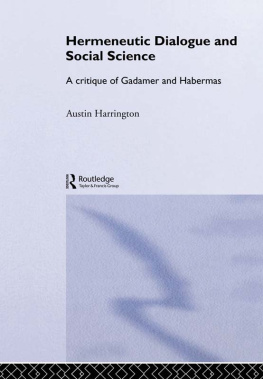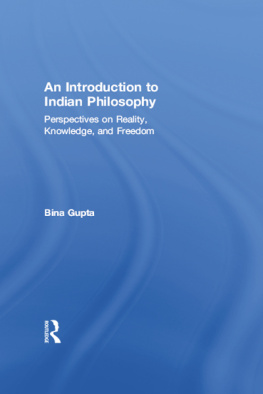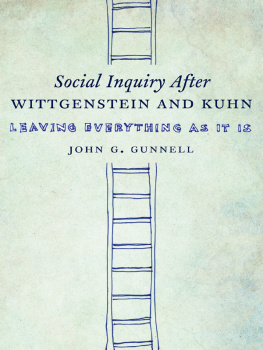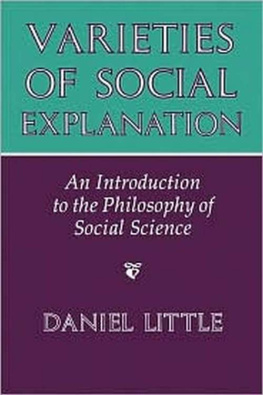First published 2000 by Pearson Education Limited
Published 2013 by Routledge
2 Park Square, Milton Park, Abingdon, Oxon, OX14 4RN
52 Vanderbilt Avenue, New York, NY 10017
Routledge is an imprint of the Taylor & Francis Group, an informa business
Taylor & Francis 2000
The right of Garry Potter to be identified as the author of this Work has been asserted by him in accordance with the Copyright, Designs and Patents Act 1988.
All rights reserved. No part of this book may be reprinted or reproduced or utilised in any form or by any electronic, mechanical, or other means, now known or hereafter invented, including photocopying and recording, or in any information storage or retrieval system, without permission in writing from the publishers.
Notices
Knowledge and best practice in this field are constantly changing. As new research and experience broaden our understanding, changes in research methods, professional practices, or medical treatment may become necessary.
Practitioners and researchers must always rely on their own experience and knowledge in evaluating and using any information, methods, compounds, or experiments described herein. In using such information or methods they should be mindful of their own safety and the safety of others, including parties for whom they have a professional responsibility.
To the fullest extent of the law, neither the Publisher nor the authors, contributors, or editors, assume any liability for any injury and/or damage to persons or property as a matter of products liability, negligence or otherwise, or from any use or operation of any methods, products, instructions, or ideas contained in the material herein.
ISBN 978-0-582-36974-0 (pbk)
British Library Cataloguing-in-Publication Data
A catalogue record for this book is available from the British Library
Library of Congress Cataloging-in-Publication Data
Potter, Garry, 1955-
The philosophy of social science : new perspectives I Garry Potter.
p. em.
Includes bibliographical references and index.
ISBN 0-582-36974-6 (pa.)
I. Social sciences-Philosophy. I. Title.
H61.15.P68 1999
Set by 35 in 10/12pt Times
This book presents a survey of issues and debate within the philosophy of social science. It is, of course, by no means a comprehensive survey. The field has not only become increasingly vast and complex in its own right, but is now so thoroughly entangled with other theoretical and substantive research questions that any attempt at a comprehensive survey would be doomed to failure. However, this books survey of the issues is also intended as an introductory one. Its introductory nature not only limits the range and depth with which the subject matter may be engaged, but has also guided the mode of exposition. This initial qualification is not intended as an apology. It is merely a clarification of the books objectives. I dont wish to suggest that there will be nothing in it for the more advanced student, or even for experts in the field. However, its starting point is an assumption of no previous knowledge on the part of the reader.
Not only is this survey of debate not comprehensive, it is not wholly objective. Again no apology is intended by this admission. Amongst the range of positions considered, the critical realist position is given pride of place. Objectivity is conceived, on the one hand, as an objective to be strived for; certainly a fair presentation of all the non-realist positions is attempted. On the other hand, the very notion of objectivity forms a significant aspect of the subject matter itself. It is an issue upon which the critical realist position recommends the declaration of biases without believing that that in itself resolves the complexity of a very problematic issue.
There is a good deal of irony intended in both form and content of this book. Critical realism is a philosophical position that emerged out of a critique of both the positivist and hermeneutic traditions. It was felt for some time that, broadly speaking, these two contrasting positions were exhaustive. That is, though a vast range of carefully nuanced points of view were available within each camp, so to speak, the most fundamental aspects of philosophy of social science debate were a bi-polar affair. Recent developments, of which the emergence of the critical realism position is only one, have destroyed that duality. They are also responsible for my conscious intention of irony.
Realism emerged first as a critique of positivism, of positivism within natural rather than social science. Increasingly today, philosophy of social science debates must make reference to the philosophical problems and issues of natural science in a different manner than previously. In the past, natural science was also a reference point for the most significant issues within the philosophy of social science. Questions concerning the possibility and desirability of social science were considered in relation to the natural science model; or rather they were considered in relation to the (broadly speaking) positivist view of natural science. Today, we are said to be in a post-positivist era.
Positivisms view of natural science cannot form the same reference point for the discussion of social sciences scientificity. Yet it is important all the same. Its very inadequacies demonstrate much that is also wrong with the alleged polar opposition of the hermeneutic or humanist camp. Postmodernist epistemology can be seen as an evolution of some of the earlier interpretivist criticism of positivist social science. It is not necessarily that it is taken to greater extremes of relativism. Such extremes had already been reached by earlier thinkers. Rather the perspective shifted. What was felt to be a very serious problem, by Peter Winch for example, is not resolved but simply celebrated by some later postmodernist thinkers. Thus, demonstrations of ironic ambiguity are sometimes propounded as philosophical solutions.
The current state of play within philosophy of social science debate thus created the (perceived) necessity for a number of embedded ironies within this book. First, though critical realism grew out of a critique of positivism, it was felt that a much more sympathetic presentation of it was required than the straw man caricatured critiques that may sometimes be found within the humanist/hermeneutic postmodernist camps. The positivists have many criticisms to answer. However, the point is that they do (in most cases) have some plausible answers. Secondly, the sharp polarity between positivist description (and prescription) of scientific forms of explanation and theory is somewhat illusory. In Chapter 4 the re-framing of Max Webers theory of understanding and ideal types in Karl Poppers terms of situational logic and falsification rather dramatically makes this point by demonstration.
Making points through demonstration, the so-called performative critique of deconstruction, seems to be believed by postmodernists to be their exclusive property. As are also wit, irony, playfulness, a literary turn of phrase and innovative forms of presentation. Unfortunately, however, such innovation seldom manifests itself in terms of increased accessibility to students new to the field. Perhaps this explains the scarcity of the postmodernist form of lecture or introductory text. Perhaps they feel that such dry dusty stuff can be left to old modernist dinosaurs or that they can slip back into it occasionally just to bring the student up to speed.







